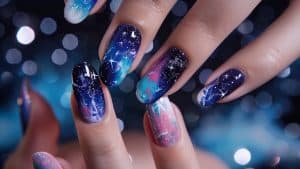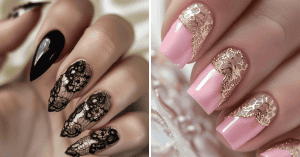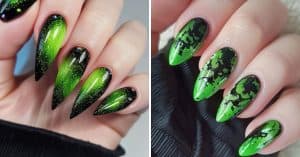Have you ever wondered if nail glue is bad for your nails? The answer is yes—nail glue can be damaging to your nails. Nail glue is made up of harsh chemicals that can weaken or damage your nails over time.
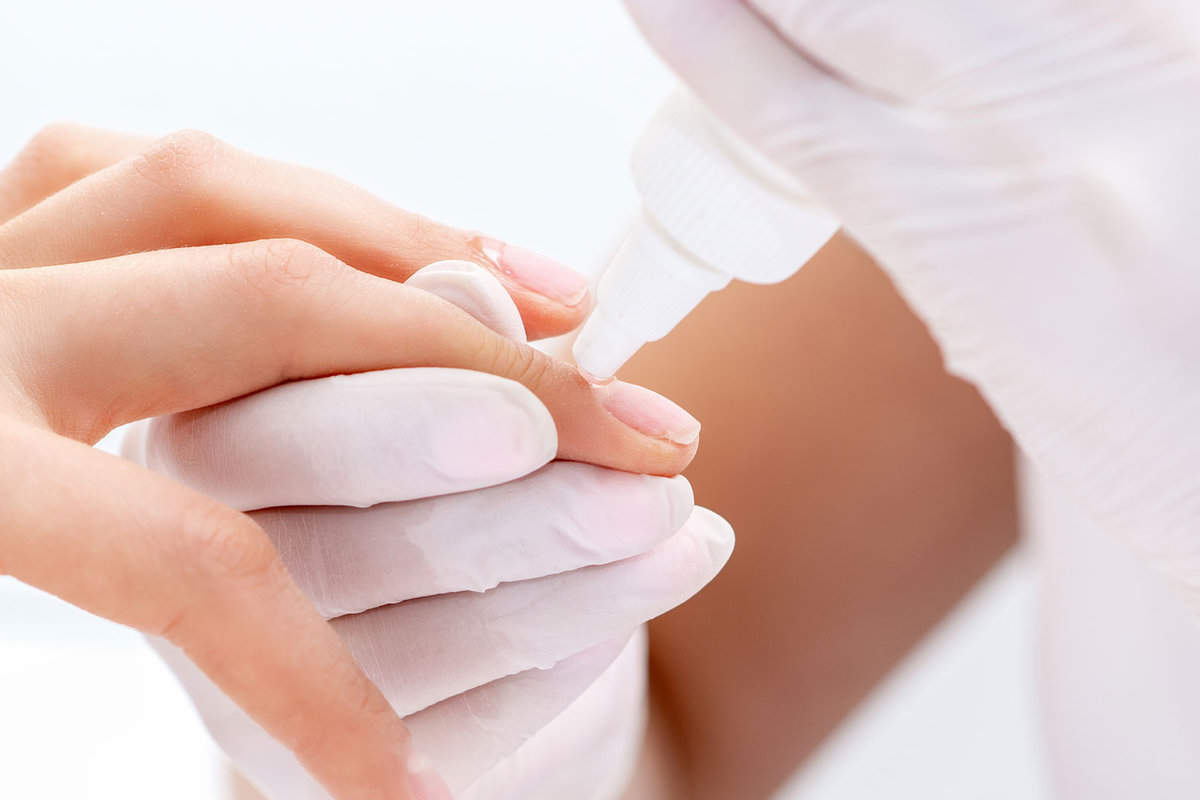
This article may include affiliate links and elements that were carefully created by our team using advanced ai to help you envision the best style advice.
Prolonged use of nail glue can deprive your nails of much-needed moisture and oils, leading to brittle and weak nails. If you are sensitive to nail glue, you should be especially cautious.
However, this doesn't mean you need to avoid nail glue entirely. You can take steps to protect your natural nails while still enjoying the benefits of nail glue.
How Does Nail Glue Adhere To The Nail Surface?
Nail glue, primarily made of cyanoacrylate, quickly polymerizes with hydroxide ions, which can come from the moisture in the air or even the nail's surface. Now, when you look closer, our nails are like nature's jigsaw puzzles with ridges and nooks.
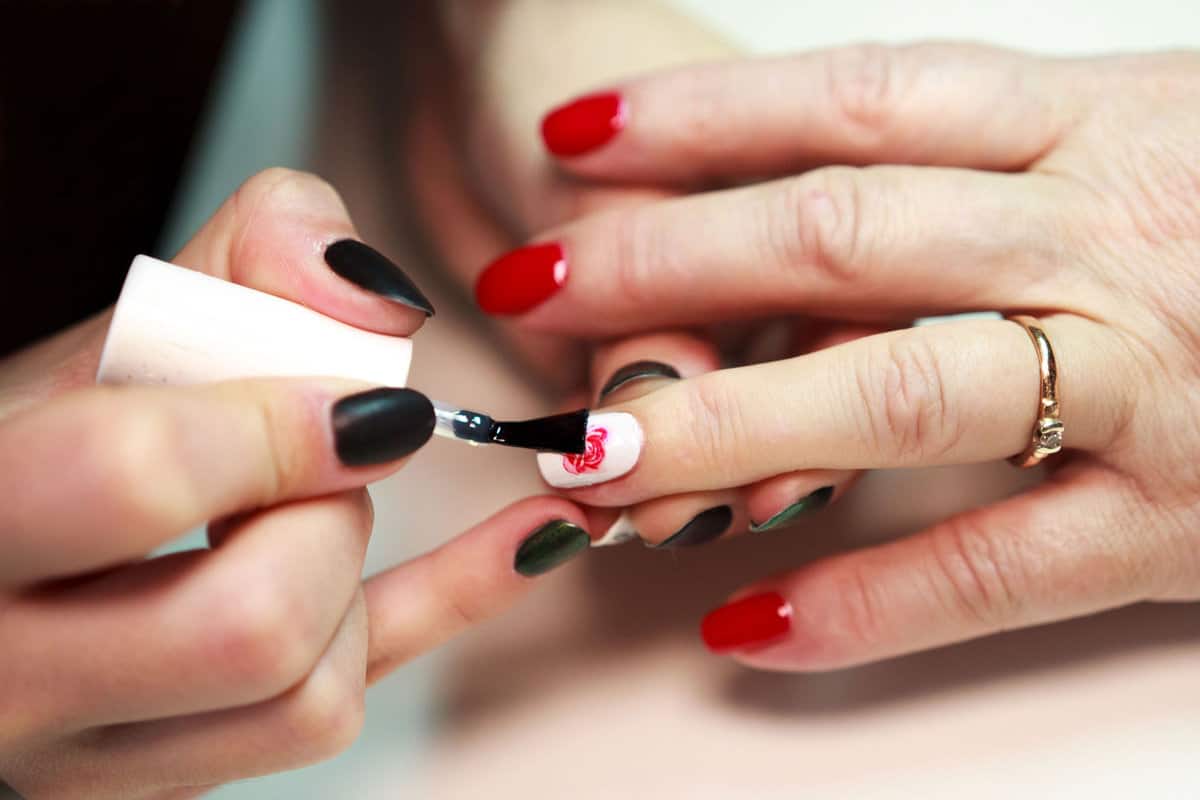
The liquid nail glue slides into these micro-grooves and dries, forming a sturdy bond. Pressing an artificial nail against this glued surface ensures an even firmer grip by dismissing air pockets.
And let’s not forget about the room's humidity. Too much moisture might rush the curing act, while too little might slow it down.
Ever wonder why nail professionals clean and buff before applying the glue? It's to remove any oils and prepare the nail's surface for the adhesive, ensuring a strong bond.
The adhesive reacts with hydroxide ions, forming long polymer chains that change the liquid adhesive into a solid bond. It's a precise combination of science and technique.
Is Nail Glue Bad For Your Nails?
The answer is yes, it can be. Nail glue contains chemicals that can damage your natural nails. The chemicals in traditional nail glue can deprive your nails of much-needed moisture and oils, leaving them brittle and weak.
This is why many people experience headaches when they take their fake nails off, due to the chemicals used to adhere them.
Potential Harm From Frequent Use Of Nail Glue
Here are the potential risks associated with the frequent use of nail glue that you should be aware of.
1. Nail Breakage
If you frequently use nail glue for artificial nails or nail repairs, your natural nails can take a beating.
The constant covering and bonding can weaken the natural nail, making it more prone to splits and breaks. It's like always wearing shoes and never letting your feet breathe!
2. Exposure To Chemicals
The chemicals in nail glue, which provide its strong bonding abilities, can raise concerns with frequent exposure.
Ethyl Cyanoacrylate, for example, is a powerful adhesive and, although effective, isn't ideal for constant contact. Hydroxypropyl Methacrylate can cause allergic reactions in some, resulting in skin irritation.
Additionally, components like BHA (Butylated Hydroxyanisole) and Citric Acid might not be suitable for repeated exposure.
3. Inhalation
The nail glue fumes aren’t a breath of fresh air. Using nail glue in a well-ventilated area is a good idea, but if you frequently use it in confined spaces, you might inhale chemicals irritating your respiratory system.
4. Removal Woes
We all know the joy of getting a new set of artificial nails, but the removal process? Not so much fun. Acetone, the most common nail glue remover, can be quite harsh on the nails and surrounding skin when used frequently.
This concern brings to light the importance of how much glue to apply to fake nails. Applying the right amount can ease the removal process, reducing the need for excessive use of acetone and thereby lessening its harsh effects.
What Are Signs Of Damaged Nails From Nail Glue?
As explained above, nail glue can damage your nails if used excessively or incorrectly. Here are some signs to look out for if you suspect your nails have been damaged by nail glue:
1. Brittle Nails
Again, nail glue can strip nails of their essential oils and moisture, leading to brittleness and frequent breakage.
2. Yellowing Nails
If you notice that your nails are starting to turn yellow, it could be due to the chemicals in the nail glue.
3. Nail Lifting
Nail glue damage can result in nails lifting or separating from their bed, especially if the glue gets underneath the nail, creating a gap.
4. Nail Fungus
Nail glue might create conditions favorable for nail fungus growth. Signs of this include discoloration, thickening, and an odd odor.
Should you observe any of these symptoms, consider pausing your use of nail glue and allowing your nails to heal. If you suspect nail fungus, it's crucial to get treatment promptly.
What Can I Do To Keep My Nails Healthy While Using Nail Glue?
So, how can you keep your nails healthy while using nail glue? Here are some tips:
1. Give Your Nails A Break
The best thing you can do is to give your nails a break every once in a while. If you can, limit using press-on nails to special occasions only. If you want to use them regularly, consider giving your nails a regular break.
2. Use Nail Supplements
Nail supplements can help keep your nails healthy and strong. Look for supplements that contain biotin, vitamin B9, iron, and other essential nutrients that promote nail health.
3. Practice Good Nail Hygiene
Keeping your nails clean and well-maintained is essential for nail health. Use sharp manicure scissors or clippers to trim your nails straight across, then round the tips in a gentle curve.
4. Don’t Ignore Problems
If you notice any changes in your nails, such as discoloration or changes in shape or thickness, it’s essential to seek medical attention. These could be signs of an underlying health issue.
Are There Safer Alternatives Or Practices For Nail Enhancement?
If you're looking for safer alternatives to nail glue, there are a few options to consider.
1. Nail Stickers Or Press-On Nails
You can opt for nail stickers or press-on nails, which don't require any glue at all. These are available in a variety of designs and styles, and they're easy to apply and remove. Plus, they're typically less damaging to your nails than glue-on options.
2. Soak-Off Gel Nails
These are becoming increasingly popular as they are more flexible than acrylic nails, posing less risk to the natural nail underneath. Once applied, they are cured under a UV or LED lamp to harden.
3. Water-Based Adhesives
These are milder alternatives to traditional nail glues and are usually less harsh on the natural nail. However, they might not provide as strong or long-lasting a bond.
What Do Experts Say About Long-Term Use Of Nail Glue?
Dermatologists recommend soaking off gel nails over acrylics for their flexibility, which minimizes the risk of natural nails cracking.
A critical piece of advice is to avoid cuticle trimming because cuticles protect your nails and surrounding skin from infections. Amid nail care discussions, there's curiosity about unconventional practices, such as using super glue in place of nail glue. It's important to weigh the safety and health implications of such choices.
Experts also emphasize practicing good nail hygiene and steering clear of harsh chemicals. Opting for artificial nails only on special occasions can give your natural nails a chance to recover, helping prevent damage.
Towards Healthier Nails
In conclusion, nail glue can be harmful to your nails if used excessively. It has harsh chemicals that can weaken or damage your nails. However, this does not mean you should avoid nail glue entirely.
If you need to use nail glue, it is important to use it carefully and sparingly. Avoid contact with your skin and cuticles, as nail glue can cause skin irritation or severe allergic reactions.
Additionally, there are alternative options to nail glue, such as adhesive-free nail wraps or nail tapes. These options are gentler on your nails and do not require the use of harsh chemicals.

